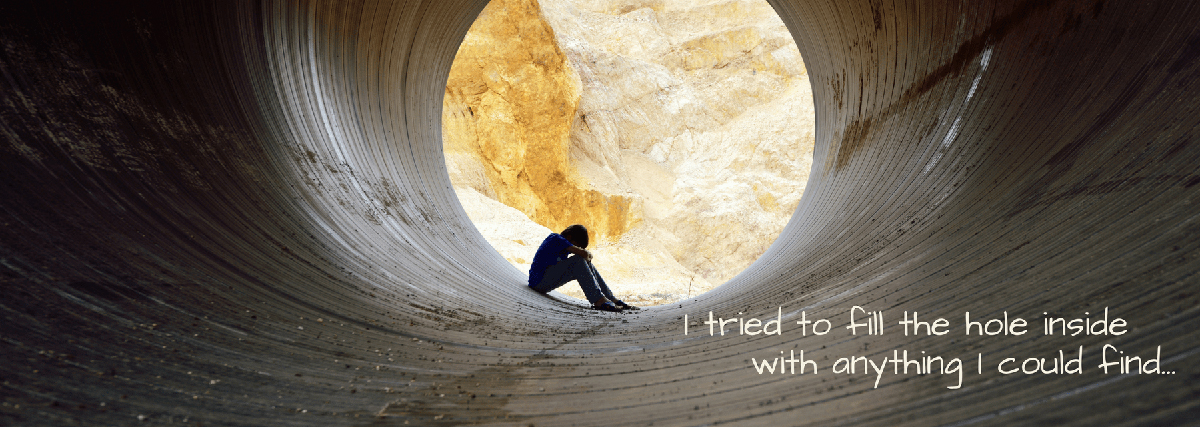There is a God-shaped vacuum in the heart of every man
– Blaise Pascal
I’ve often noticed a curious phenomenon: despite repeatedly getting on their little stumps to tub-thump about how much they hate religion, a great many atheists seem to actually have a notable weakness for religion. Provided it’s the right kind of religion, of course.
Christianity is right out. Judaism is just way too…Jewish. Buddhism is acceptably cool. But where “atheists” really get funky with religion is when it’s “indigenous”. Wave some smoking gumleaves around, and even the most right-on atheist will come over all solemn and respectful. Despite the fact that it is purely magical thinking, a “spiritual connection to the land” is taken as indisputable fact.
Even most atheists can’t entirely shake their belief in the supernatural, says a new study.
According to recent research, even those who purport not to believe in any organized religion accepted at least some supernatural sentiments.
The study comes from the Understanding Unbelief project, which is sponsored through the University of Kent in the U.K. and was based on thousands of atheist or agnostic respondents.
‘Unbelief in God doesn’t necessarily entail unbelief in other supernatural phenomena,’ write the report’s authors.
‘Atheists and (less so) agnostics exhibit lower levels of supernatural belief than do the wider populations.
‘However, only minorities of atheists or agnostics in each of our countries appear to be thoroughgoing naturalists.’

This shouldn’t be surprising. Despite the claims of celebrity atheists that humans are “born atheist”, the opposite seems to be true. A propensity to supernatural thinking seems to be innate to human nature, quite probably as a result of our evolutionary history. There is even some – albeit tenuous – evidence that our ape cousins the chimpanzees may have some faint glimmerings of supernaturalism.
Most commonly accepted beliefs among atheists, who are classified by firmly not believing in the existence of God and agnostics, who say it can’t be proved one way or another, are the sentiment that are ‘underlying forces’ of good and evil; that ‘there exists a universal spirit or life force’; and ‘most significant life events are meant to be and happen for a reason.’
The study, which aggregated atheists from the U.K., the U.S., Japan, Brazil, Denmark, and China, found that respondents from Japan tended to be the least ‘supernaturally-inclined’ while those from China and Brazil believed in the most.
Not only do some of the ‘unbelievers’, accept the idea of some supernatural phenomenon and philosophies, but according to the report, none of the nationalities studied by researchers were considered overwhelming ‘naturalists’ — a category rejects all supernatural ideas.
What does this tell us about atheists? In some respects, such as basic morality, despite the vanities of many religious believers, not a lot.
‘There is remarkably high agreement between unbelievers and general populations concerning the values most important for ‘finding meaning in the world and your own life’. ‘Family’ and ‘Freedom’ ranked highly for all,’ reads the report.
dailymail
What it does suggest is that the often repugnantly self-righteous mob of what I call “porch atheists” are mostly just jerking themselves off. They’re no more committed to a wholly naturalistic worldview than any Charlie Church.
In fact, in deluding themselves so badly, they’re leaving themselves wide open to deeply irrational ideas. As C. S. Lewis noted, simply rejecting belief in God won’t eliminate the “God-shaped space” in the human mind. Instead, people will generally fill that space with a confused mish-mash of “spiritual-but-not-religious” tosh. At worst, supposedly secular ideologies will assume religious strength in some peoples’ brains, as with the cults of personality which are part-and-parcel of Communism.
This is not to say that atheists are all stupid. After all, I’d classify myself as an atheist, yet I too must admit to the lure of supernatural thinking. It’s very hard, for instance, not to at least want to believe in life after death. Even wholly materialist philosophies of mind such as suggested by David Chalmers, or Thomas Nagel, in “Mind and Cosmos” (which I am very much inclined towards), are almost indistinguishable from some of the doctrines of religions like Buddhism.
What all this adds up to is that smug social media atheists should get off their high horses and realise that they’re not at all superior to any religious believer.

